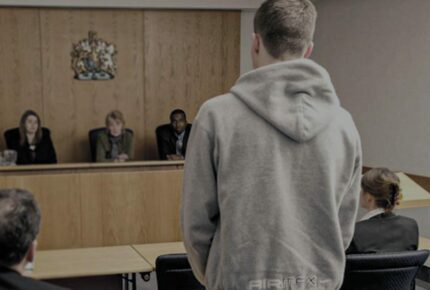

The offence of possessing indecent images is a matter of grave legal and societal significance. This offence encompasses the possession of explicit or sexually suggestive images or videos of a child without lawful reason. It is a very serious criminal act that carries profound consequences. If you or someone you know has found themselves facing charges or prosecution for possessing indecent images, comprehending the intricacies of this offence and understanding what might transpire is vital, especially if it’s a first-time offence. In this article, outline the offence of possessing indecent images, shedding light on its definition, offering examples for clarity, and addressing some of the most pressing questions regarding the potential sentences and imprisonment faced by first-time offenders.
What is the offence of possessing indecent images?
The offence of possessing indecent images of children was created by Section 160 of the Criminal Justice Act 1988. Under that Act, it is an offence for a person to have any indecent photograph or pseudo-photograph of a child in their possession, unless they had a legitimate reason for having the photograph or pseudo-photograph in their possession; or they had not themselves seen the photograph or pseudo-photograph and did not know, nor had any cause to suspect, it to be indecent; or the photograph or pseudo-photograph was sent to them without any prior request made by them or on their behalf and they did not keep it for an unreasonable time.
The age of consent in the UK is 16 and any individuals under this age cannot legally engage in sexual activity or participate in the creation of explicit material.
Convictions for the offence of possessing indecent images can result in serious punishments, including imprisonment and placement on the Sex Offenders Register. Legal representation is vital in such cases to ensure that the alleged offender’s rights are protected throughout the legal process.
What are some examples of possessing indecent images?
Here are some examples of activities that could lead to a charge of possessing indecent images:
- Downloading Explicit Material: An individual downloads sexually explicit images or videos of minors from the internet onto their computer or electronic device.
- Storing Indecent Images: Someone keeps a collection of explicit images of minors on their computer, smartphone, or external storage devices.
- Receiving Explicit Content: Receiving explicit material featuring minors through email, messaging apps, or any other electronic means without consent.
- Physical Possession: Possessing physical copies of indecent images, such as printed photographs or DVDs, featuring minors.
- Accessing Online Forums: Joining or participating in online forums or groups dedicated to sharing indecent material, including images of minors.
- Viewing Live Streams: Watching live-streamed explicit content involving minors on the internet.
- Online Storage: Storing indecent images in cloud storage or online platforms, even if they are not physically on the individual’s device.
- Chat Apps and Messaging: Sharing explicit images featuring minors through private chat apps or messaging platforms.
What happens if you are suspected of possessing indecent images in the UK?
If you are suspected of possessing indecent images in the UK, legal consequences are almost certain to follow due to the seriousness of the offence. Here is an overview of what can happen if you are suspected of possessing indecent images:
- Investigation: The police will conduct an investigation into the allegations where they suspect or have evidence that you are possessing indecent images. Investigations are likely to focus on gathering more evidence, such as electronic records, witness statements, and any other relevant information.
- Arrest: If there is sufficient evidence or reasonable grounds to suspect your involvement, the police are likely to arrest you. You will be taken into custody for questioning and should have a solicitor present.
- Questioning: While in custody, you may be questioned by the police about the alleged offence. You have the right to remain silent and to have a solicitor present.
- Search and Seizure: The police may search your premises, electronic devices, and any other relevant personal property for evidence related to the alleged offence. They may seize digital devices for further examination and there is no guarantee when you will get them back.
- Bail, Investigation, or Detention: Depending on the circumstances of your specific case, you may be released on bail, released under investigation, or held in custody pending further investigation. Conditions may be imposed.
- Charging Decision: After the investigation concludes, the police will forward the case to the Crown Prosecution Service (CPS) for a decision on whether to charge you. The CPS will review the evidence and determine whether there is enough evidence to secure a conviction.
- Court Proceedings: If charges are filed, you will be required to appear in court to face the allegations. You will have the opportunity to defend yourself with or without a solicitor (it is highly recommended you have a solicitor present throughout proceedings).
- Penalties: If you are found guilty of producing indecent images, you may face penalties, including imprisonment, fines, community orders, or restraining orders, depending on the severity of the offence and other factors.
- Criminal Record: A conviction for producing indecent images will result in a criminal record, which can have long-lasting consequences, including difficulty finding employment, travel restrictions, and damage to your reputation.
Note that being suspected of a crime does necessarily mean you are guilty and, as ever, you have a right to a fair trial. It is crucial that you consult with an experienced sexual offences defence specialist to understand your rights throughout the proceedings. If you are questioned or arrested, you should exercise your right to remain silent and seek legal representation as soon as possible.
What is the sentence for possessing indecent images in the UK?
Section 160 of the Criminal Justice Act 1988, which provides for the offence of possessing indecent images, prescribes an either way offence punishable on indictment with a maximum of 5 years’ imprisonment.
The ultimate sentence hinges on the unique circumstances of the case, encompassing factors such as the gravity and scope of the offence, the age of the depicted victims, the defendant’s intentions, and their level of responsibility.
The age of the victims portrayed is a very important consideration, as offences involving very young victims tend to result in more stringent penalties. Additionally, the court takes into account the defendant’s intent and culpability, and sentences may be influenced by mitigating elements, such as cooperation with authorities and displays of remorse, as well as aggravating aspects such as threats or coercion.
While sentencing guidelines offer a framework for the judicial process, judges retain the discretion to determine the most fitting punishment based on the precise circumstances of each case. It is imperative for individuals facing allegations related to possessing indecent images to secure legal counsel, ensuring the protection of their rights and receiving tailored guidance for their specific situation.
Will I go to prison if it is my first time possessing indecent images?
The fate of a first-time offender facing charges for the possession of indecent images in the UK hinges on a multitude of factors. These factors encompass the unique circumstances of the case, including the gravity of the offence, the age of the victims depicted, the defendant’s intentions, and their level of culpability.
When dealing with first-time offenders, the court considers various elements. It evaluates how severe the offence is, especially in terms of the explicitness of the images, the age of the depicted victims, and the quantity of images involved. Offences involving very young victims tend to be viewed with greater seriousness. Intent and culpability also come under scrutiny. The court assesses whether the defendant was aware of the age of the victims and the explicit nature of the material.
Additionally, mitigating factors play a significant role. These can include the defendant’s cooperation with authorities, expressions of genuine remorse, a lack of prior convictions, or a guilty plea. Such factors may lead to a more lenient sentence.
On the flip side, aggravating factors, such as threats, coercion, or the involvement of numerous victims, can lead to more severe penalties.
Judges retain the discretion to decide on the most fitting punishment based on the specific details of each case.
Whether a first-time offender goes to prison for possession of indecent images is determined by a complex interplay of circumstances and legal considerations. Seeking legal counsel is crucial in such cases to ensure that one’s rights are protected and to receive guidance tailored to the individual situation. Legal professionals can offer insights into potential defences and strategies for addressing the charges effectively.
Where to get further help
Facing a charge of possessing indecent images can be very worrying, especially if it is your first encounter with the criminal justice system. Having the right legal help on hand when you need it most is, however, a sure way to feel more confident throughout the process and in mounting your defence. To arrange a free consultation, contact the team at Stuart Miller Solicitors today.
OUR COMMITMENTS TO YOU:
-
Responsive
A legal expert will consult you within 24 hours of making an enquiry.
-
Empathetic
We will always treat you with trust, understanding and respect.
-
Specialised
Your case will be handled by an expert who specialises in your type of offence.
-
Proactive
We will take early action to end proceedings as soon as it is practically and legally possible to do so.
-
Engaged
You will be kept updated on your case at all times. We will provide a named contact available to answer your questions.
-
Caring
We understand this is a difficult and stressful time for you and your family. Our team will support you every step of the way.
-
Tenacious
We will never give up on your case. We fight tirelessly to get you the best possible outcome.

